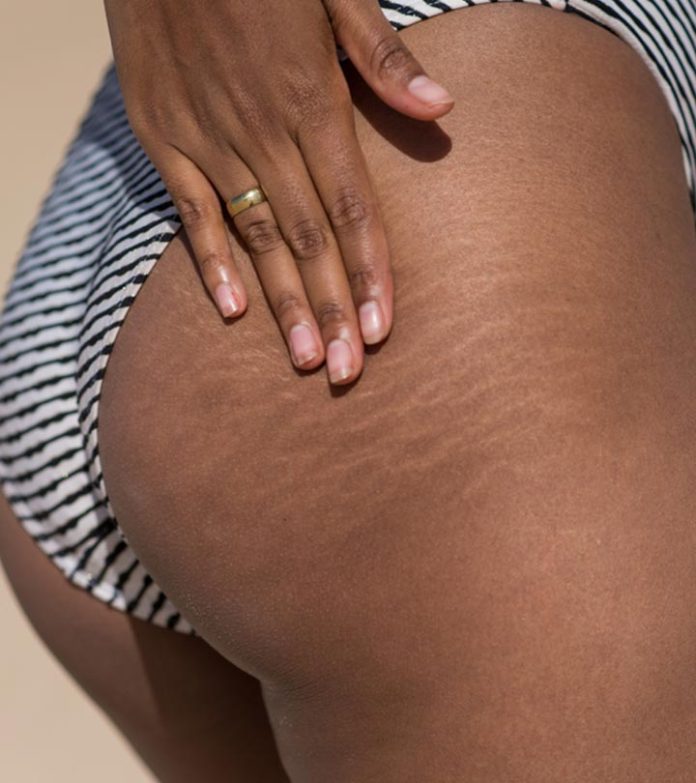Hyperpigmentation on the buttocks can be a distressing skin issue for many women. It’s a condition where patches of skin become darker than the surrounding area. This can be due to various reasons, including hormonal changes, friction, or even certain lifestyle habits.
Understanding the causes and exploring both home remedies and professional treatments can help manage and potentially reduce this skin concern.
Understanding hyperpigmentation
Hyperpigmentation occurs when excess melanin forms deposits in the skin. This can happen in small patches, cover large areas, or affect the entire body. It’s particularly common in areas subject to friction, pressure, or constant contact with clothing, like the buttocks.
Common causes
Friction from tight clothing: Constant rubbing against the skin can lead to darkening. Tight clothing, especially synthetic materials, can exacerbate this.
Extended sun exposure: While less common for the buttocks, sun exposure can increase melanin production, leading to hyperpigmentation.
Hormonal influences: Hormonal changes, such as those during the menstrual cycle or due to birth control pills, can affect skin pigmentation.
Post-inflammatory hyperpigmentation: This occurs following skin injury or inflammation, often from acne, wounds, or rashes.
Lifestyle factors: Poor hygiene and prolonged sitting can contribute to skin darkening in the buttock area.
Professional treatments
Topical creams: Over-the-counter creams containing ingredients like hydroquinone, kojic acid, or azelaic acid can lighten hyperpigmented areas.
Chemical peels and microdermabrasion: These treatments remove the outer layer of skin, helping to reduce the appearance of hyperpigmentation.
Laser therapy: Laser treatments can be effective for stubborner cases but should be done under professional guidance.
Home remedies
Regular exfoliation: Using natural exfoliants like sugar or oatmeal scrubs can help remove dead skin cells and lighten dark patches.
Natural lighteners: Lemon juice, turmeric, and aloe vera are known for their skin-lightening properties. However, they should be used cautiously to avoid irritation.
Proper hygiene and skincare: Keeping the area clean and moisturized can prevent further skin damage and aid in healing.
Preventive measures
Wear breathable clothing: Choose loose, comfortable clothing made from natural fibers to reduce friction.
Sun protection: Apply sunscreen on exposed areas to prevent sun-induced hyperpigmentation.
Healthy lifestyle: Maintaining good hygiene and a balanced diet can improve overall skin health.
Consult a dermatologist: If over-the-counter treatments and home remedies aren’t effective, or if you notice any concerning symptoms, consult a dermatologist. They can provide tailored advice and suggest treatments like prescription creams or professional procedures.
Conclusion
Hyperpigmentation on the buttocks is a common issue for many women. While it can be a source of discomfort and self-consciousness, there are various ways to manage and treat it.
By understanding the causes and exploring both professional treatments and home remedies, you can take steps towards clearer, more even-toned skin. Remember, each skin type is different, and what works for one person may not work for another. Patience and consistency are key in treating hyperpigmentation.


